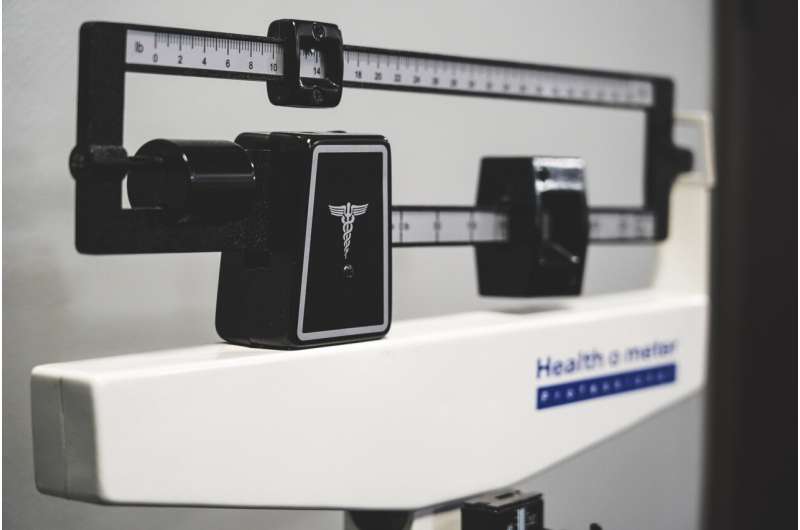This article has been reviewed according to Science X's editorial process and policies. Editors have highlighted the following attributes while ensuring the content's credibility:
fact-checked
peer-reviewed publication
trusted source
proofread
Patients more likely to lose weight if physicians offer advice using optimistic tone, research finds

An analysis of patient encounters at 38 primary care clinics found that patients were more likely to participate in a recommended weight loss program and lose weight successfully if physicians presented treatments for obesity as good news and as an "opportunity" rather than emphasizing the negative consequences of obesity or using neutral language. The findings are published in Annals of Internal Medicine.
International guidelines recommend that primary care clinicians screen for overweight and obesity and offer treatment opportunistically. Patients have reported that clinicians' words and tone matter to them and can motivate or demotivate weight loss. However, evidence is lacking on effective strategies for discussing weight and offering treatment.
Researchers from the University of Oxford analyzed recordings of conversations physicians had with their patients regarding a 12-week no-cost behavioral weight loss intervention to examine relationships between language used in the clinical visit and patient behaviors, including participation in the program and weight loss outcomes. Interaction patterns were characterized one of three approach types.
The "good news" approach, which was the least common language style observed, communicated positivity and optimism, focused on the benefits of weight loss, and presented the weight loss program as an "opportunity," with very little mention of obesity, body mass index, or weight as a problem. Paralinguistic style was smooth and fast-paced and conveyed excitement.
The "bad news" approach emphasized the "problem" of obesity, with physicians asserting themselves as the expert and focused on challenges of weight control, with a delivery that conveyed regret and pessimism. The "neutral" news delivery, the most common observed, lacked either positive or negative features.
The researchers found that patients who received counseling via the good news approach had the highest observed weight loss at the end of 12 months, losing approximately 4.8 kg (10.6 lb) on average compared with 2.7 kg (6.0 lb) among those in the bad news group and 1.2 kg (2.6 lb) among those in the neutral news group.
The greater weight loss in the good news group seemed to be driven by higher enrollment in the 12-week weight loss program, with 87% of participants in this group attended the program compared with less than half of those in the neutral news and bad news groups. Among those enrolled, weight loss outcomes did not vary substantially regardless of how the initial counseling was delivered.
More information: Relationship Between Clinician Language and the Success of Behavioral Weight Loss Interventions, Annals of Internal Medicine (2023). DOI: 10.7326/M22-2360
Conversations About Obesity and Weight: Good News We Can Use, Annals of Internal Medicine (2023). DOI: 10.7326/M23-2568. www.acpjournals.org/doi/10.7326/M23-2568





















